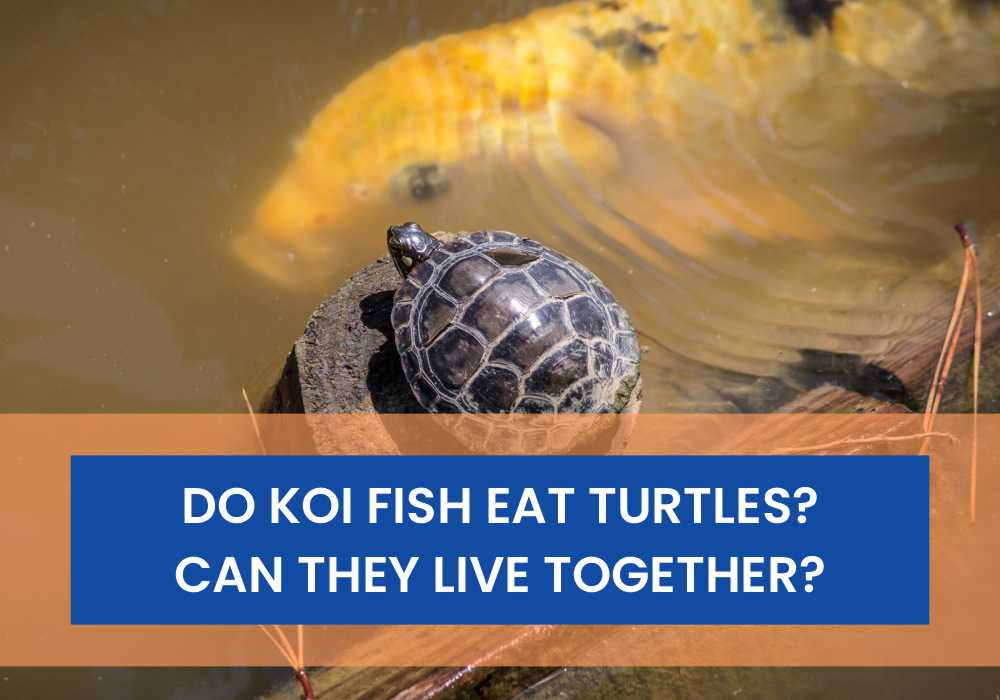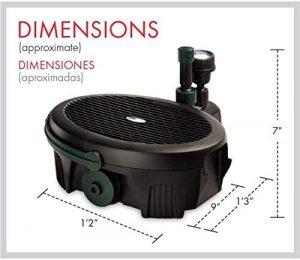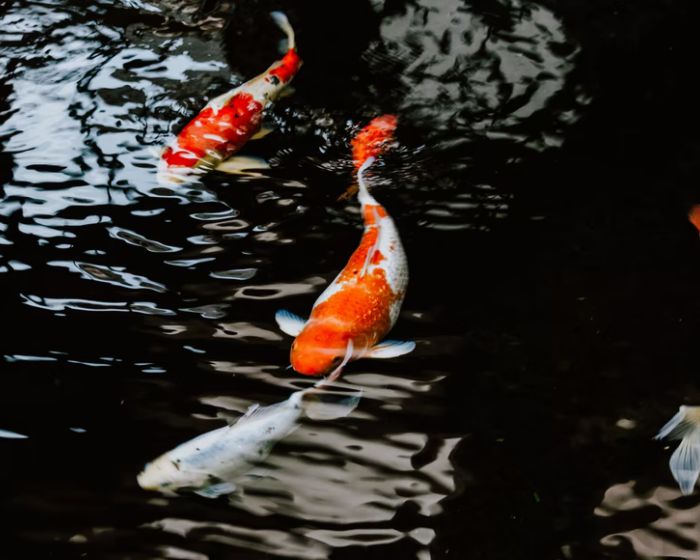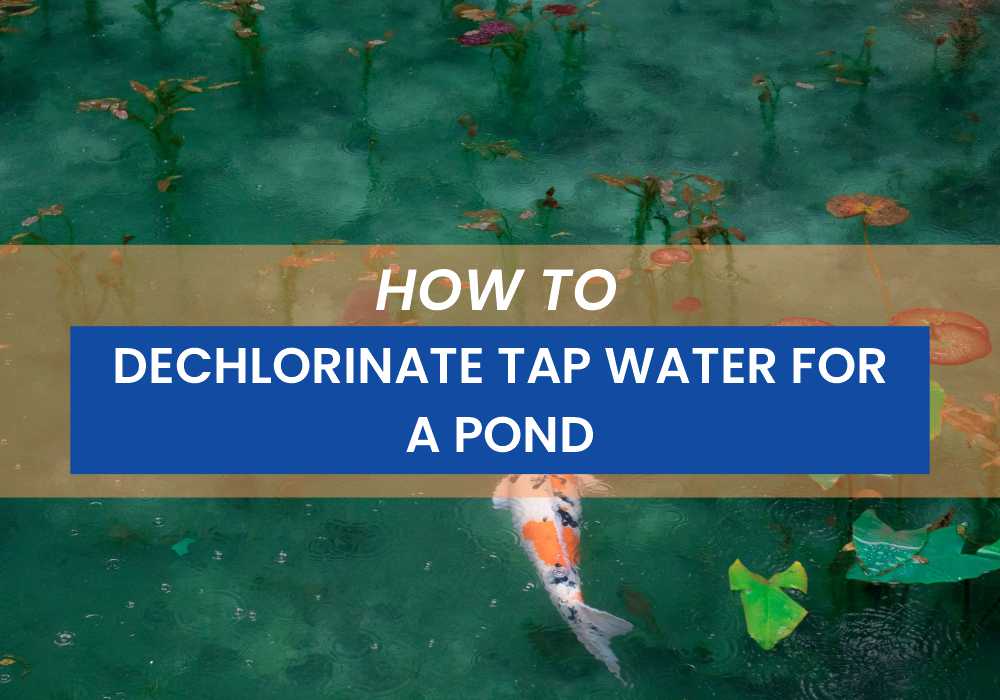As an Affiliate, We may earn a commission that doesn't cost you extra from qualifying purchases using links in this post. It helps keeps this blog running.
Koi fish are a type of freshwater fish that originates from East Asia. They are a popular choice for ornamental ponds and aquariums, due to their vibrant colors and elegant swimming patterns. Koi are omnivorous, meaning they will eat both plant and animal matter. In the wild, their diet consists of small insects, crustaceans, and plant matter. In captivity, their diet can be supplemented with pellets, flakes, and live foods.
Koi are not picky eaters and will accept most types of food. However, it is important to provide them with a well-balanced diet in order to ensure their health and vitality. A healthy diet for koi should consist of both plant and animal matter. Koi pellets or flakes are a good source of protein, while vegetables such as zucchini, peas, and lettuce provide essential vitamins and minerals. Live foods such as earthworms, brine shrimp, and bloodworms are also a favorite among koi and offer a nutritious treat.
When planning the habitat of your koi it’s important to not just include plants and rocks, some aquatic animals can also make good tank mates. Many people believe that koi and turtles make good partners in a pond or aquarium. While it is true that they can coexist peacefully, there are a few things to keep in mind if you’re considering this pairing.
Can I Put Turtles In My Pond?
You may have seen turtles in ponds at parks or zoos and thought they would make a great addition to your backyard pond, well, you are right. Yes, turtles are safe and you can put turtles in your pond. There are many benefits to having turtles in your pond. Turtles help keep the pond clean by eating algae and other aquatic plants. They can also provide aeration by swimming around and stirring up the water.
While turtles are good for ponds, they can also be fun and interesting pets, but there are a few things to consider before adding them to your pond.
- Turtles can carry diseases that could make your other fish sick, so it’s important to quarantine any new turtle before adding it to your pond.
- Turtles can also damage delicate aquatic plants, so if you’re planning on keeping delicate plants in your pond, it’s best to avoid adding turtles.
- Turtles are also known for digging, so if you have a liner in your pond, turtles could easily tear it and cause leaks. If you’re determined to add turtles to your pond, be sure to choose a species that stays relatively small, such as the Eastern painted turtle or the red-eared slider.
Adding turtles to your pond can be a fun and rewarding experience, but it’s important to do your research and consider all the potential consequences before making the decision to add them to your pond.
@dantheturtleman Reply to @bnegomez FAQ’s answered! #ChewyChattyPets #turtles #pettok #reptiles #fishtok #terrapin ♬ Pure Imagination – Rook1e
Can Koi and Turtles Live Together In The Same Tank or Pond?
The quick answer is yes, turtles and Koi fish can live in the same pond or tank. However, there are a few things to consider before adding turtles to your koi fish pond.
Koi are a type of fish that is native to Asia and known for their beautiful colors and patterns. They range in size from two to three feet long and can live up to 30 years in captivity.
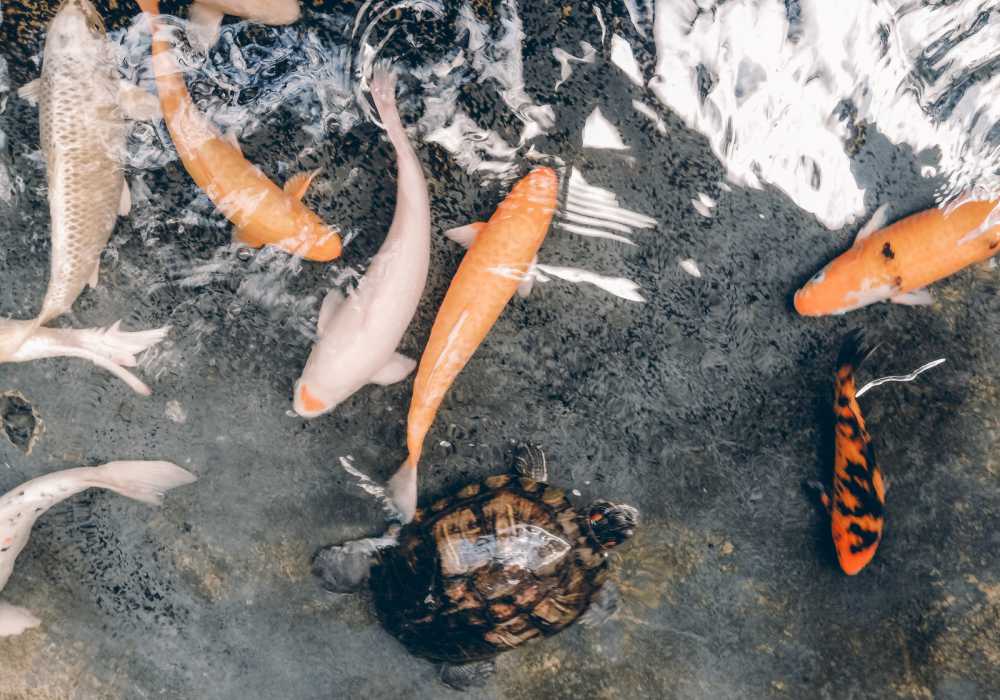
Turtles, on the other hand, are reptiles that spend most of their time in the water. There are many different species of turtles, but the most common ones kept as pets are red-eared sliders and box turtles. Turtles can grow up to two feet long and live up to fifty years in captivity.
One thing to consider before adding turtles to your koi fish pond is the size of the pond. So if you plan on adding more than one turtle and fish to your pond, you will need to make sure it is large enough to accommodate both species.
Another thing to keep in mind is that turtles are carnivores and will eat just about anything they can fit into their mouths, including fish. While most turtles will not purposely go after koi, they may accidentally snag one while trying to catch something else. To help prevent this, make sure there are plenty of hiding places in your pond for the koi to escape to if a turtle does get too close, and also make sure your Koi and Turtle are roughly the same sizes.
Overall, turtles and koi can live together in the same pond as long as you take the necessary precautions. By providing a large enough space and plenty of places for the koi to hide, you can help ensure that both species will thrive.
How Many Turtles Should Be In A Koi Pond?
The number of turtles that can be kept in a koi pond really depends on the size of the pond and the number of koi fish. A good rule of thumb is to have no more than two turtles per 15 gallons of water. If your pond is heavily stocked with fish, you may want to add even fewer turtles. So, for example, if you have a 75-gallon pond, you could keep up to 10 turtles in it alongside Koi fish.
Turtles are often viewed as pests by koi keepers because they will eat just about anything, including koi food pellets, small fish, and even plants. While some people choose to remove all turtles from their ponds, others find that having a few around actually helps keep the pond clean by eating algae and other debris.
If you do decide to add turtles to your koi pond, be sure to choose a species that is known to be relatively docile and not overly aggressive. Popular choices include red-eared sliders, painted turtles, and soft-shell turtles. Stay away from snapping turtles, which can be quite dangerous. It’s also a good idea to have a filter system in place to help with filtration because turtles are very messy creatures and produce a lot of waste.
All In One solution Aquagarden Pennington, Inpond, Pond & Water Pump, Filter, with UV Clarifier.
The recommended UV filter for Koi pond is the All In One solution Aquagarden Pennington, Inpond, Pond & Water Pump, Filter, with UV Clarifier. With a comprehensive range of three fountain heads, that provides an instant solution for a clear and healthy pond. This filter also comes with a built-in 5-watt UV clarifier light that helps kill green water and algae.
What Are The Best Turtles For Koi Ponds?
There are many different species of turtles that can be kept with koi fish, but some are better than others. When choosing a turtle for your koi pond, you’ll want to consider its size, temperament, and diet.
Some of the best turtles for koi ponds that can live together with Koi Fish are as follow:
1) Red-eared Slider Turtle
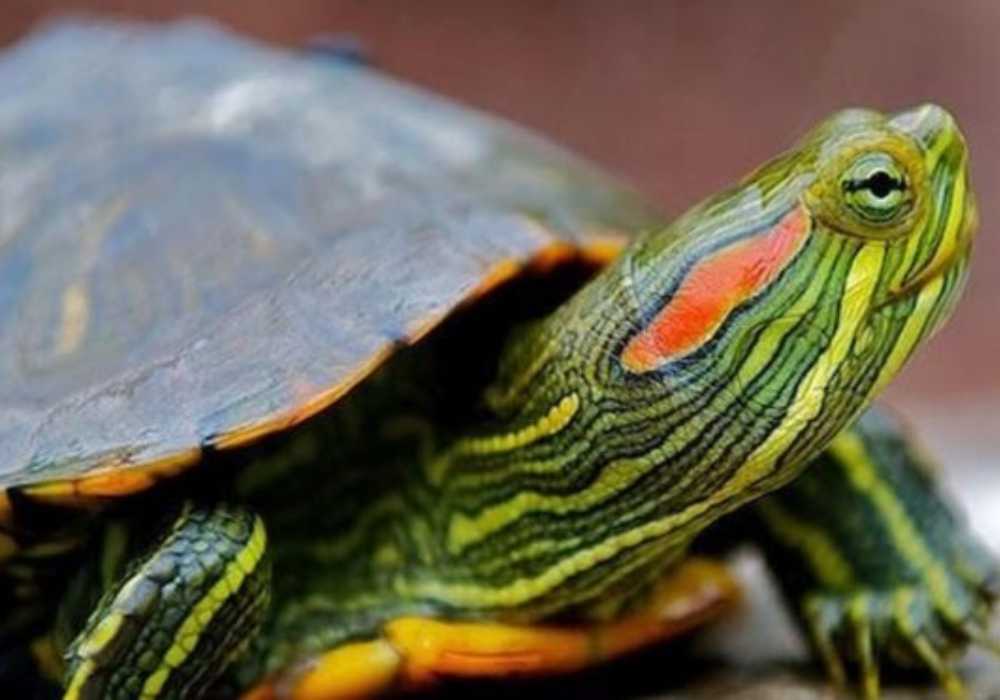
One of the best turtles for koi ponds is the red-eared slider turtle. These turtles are relatively small, reaching a maximum length of about 12 inches. They’re also gentle by nature and won’t bother your koi fish. Plus, their diet consists mainly of plants, so they won’t compete with your koi for food.
2) Painted Turtle
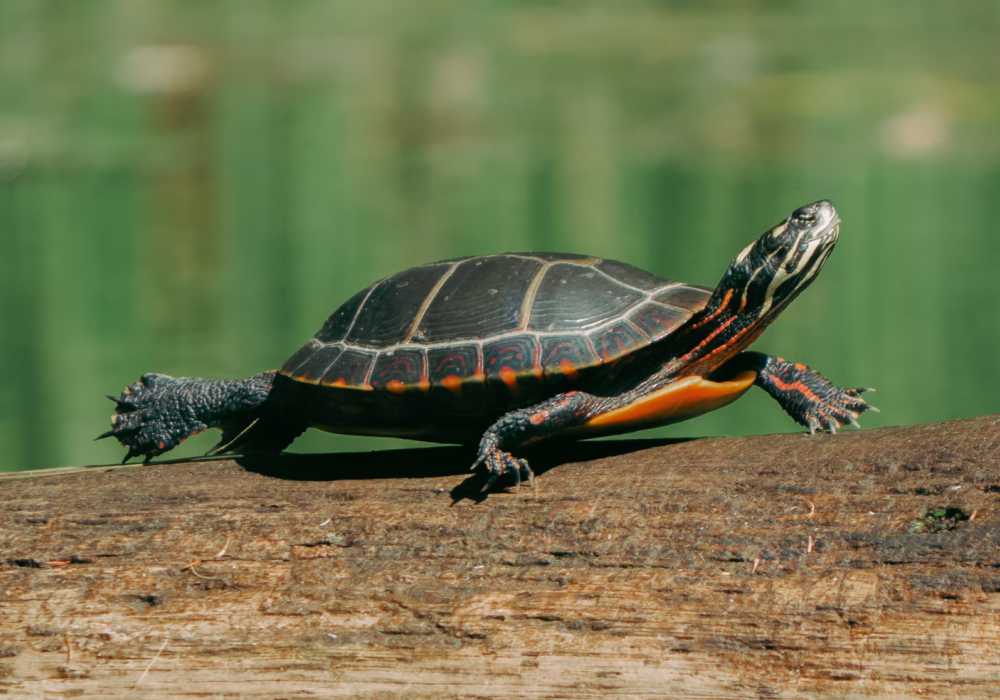
Another good choice for koi pond turtles includes the painted turtle. These species of turtle are small and peaceful, and they mainly eat plants. Painted turtles usually max out at about 10 inches in length.
3) Eastern Box Turtle
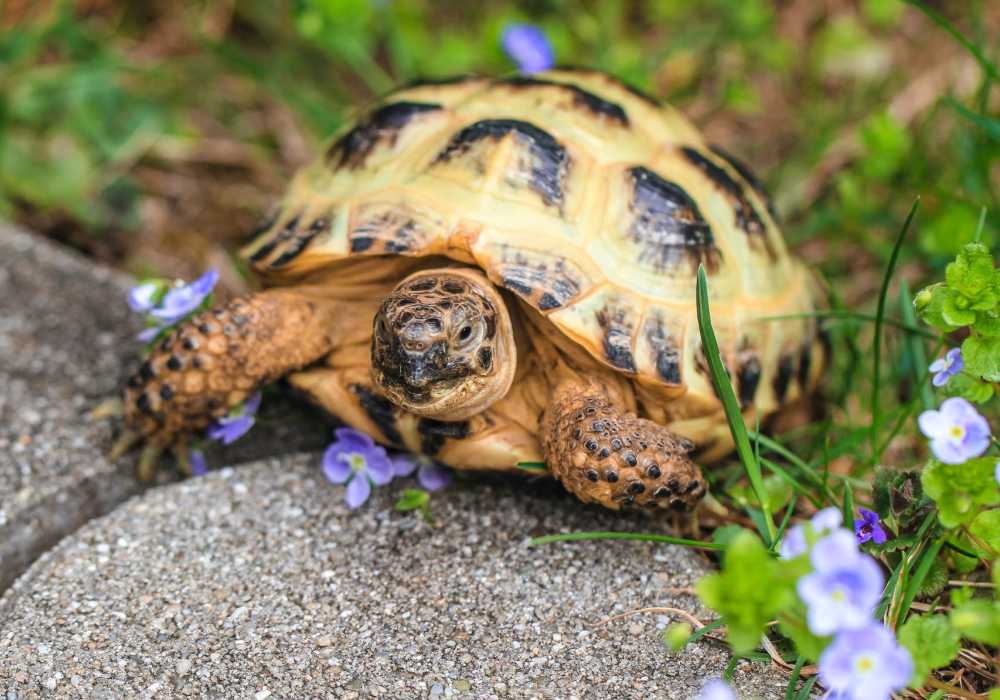
If you’re looking for a slightly larger turtle that can still coexist peacefully with koi fish, then consider the eastern box turtle. These turtles can reach lengths of up to 8 inches and generally have a calm temperament. Their diet is also mostly plant-based, so they won’t compete with your koi for food.
4) Wood Turtle
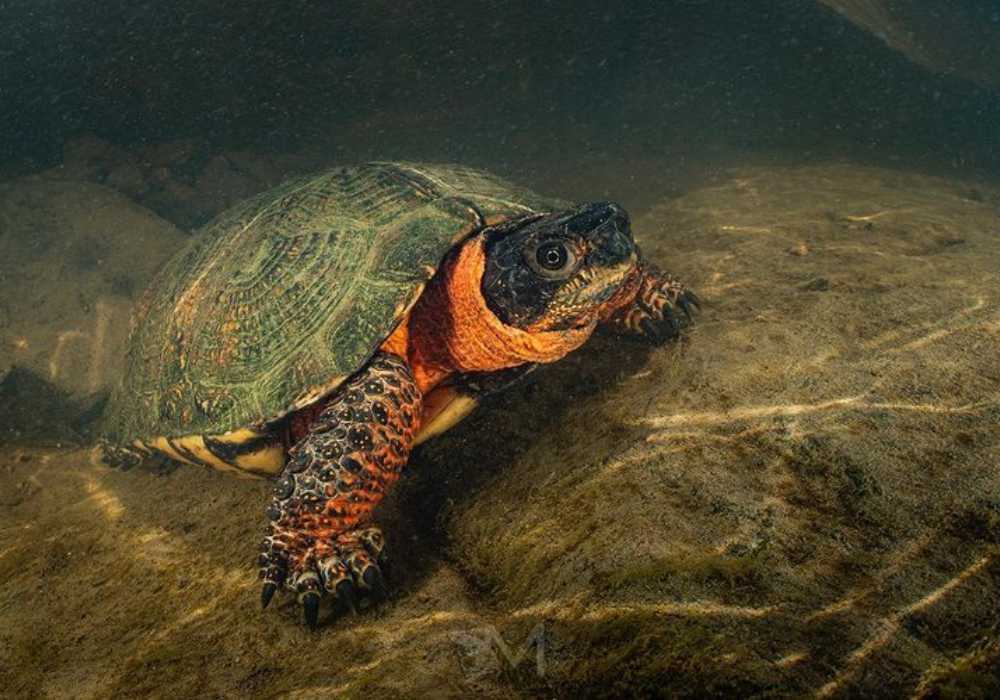
The wood turtle is another great choice for a koi pond turtle. These turtles are on the larger side, reaching lengths of up to 18 inches. They’re also very docile by nature and tend to eat a lot of plants. So, they won’t bother your koi fish and they won’t compete with them for food.
5) Leopard Tortoise
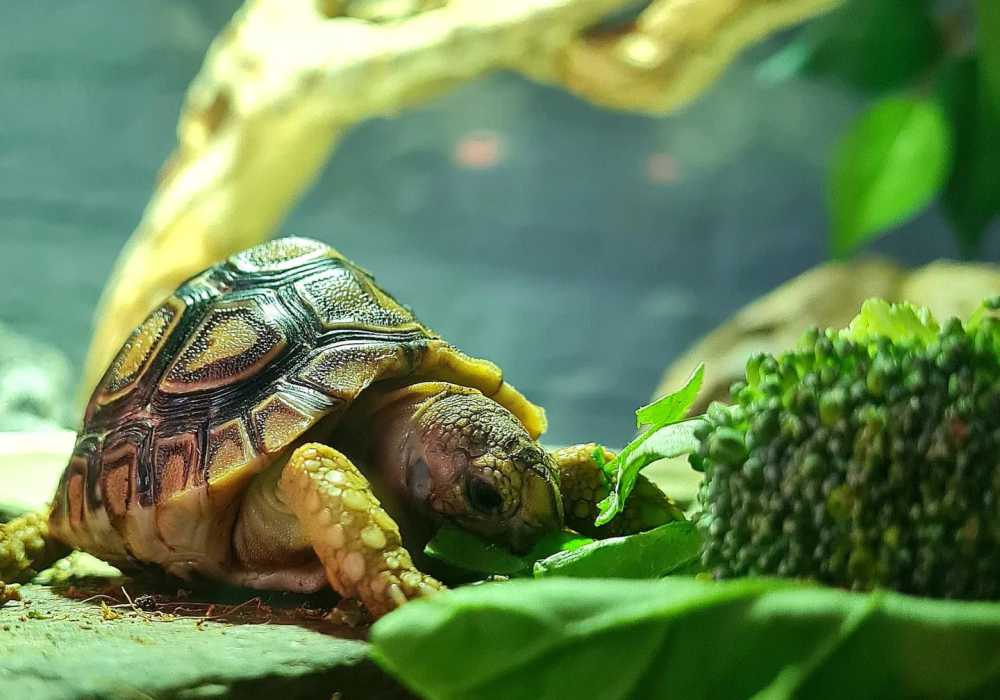
If you’re looking for a really large turtle that can live peacefully with koi fish, then the leopard tortoise is a good option. These turtles can reach lengths of up to 3 feet and weigh over 100 pounds. They’re very docile by nature and have a diet that consists mainly of plants. So, they shouldn’t bother your koi fish and they won’t compete with them for food.
6) Stinkpot Turtle
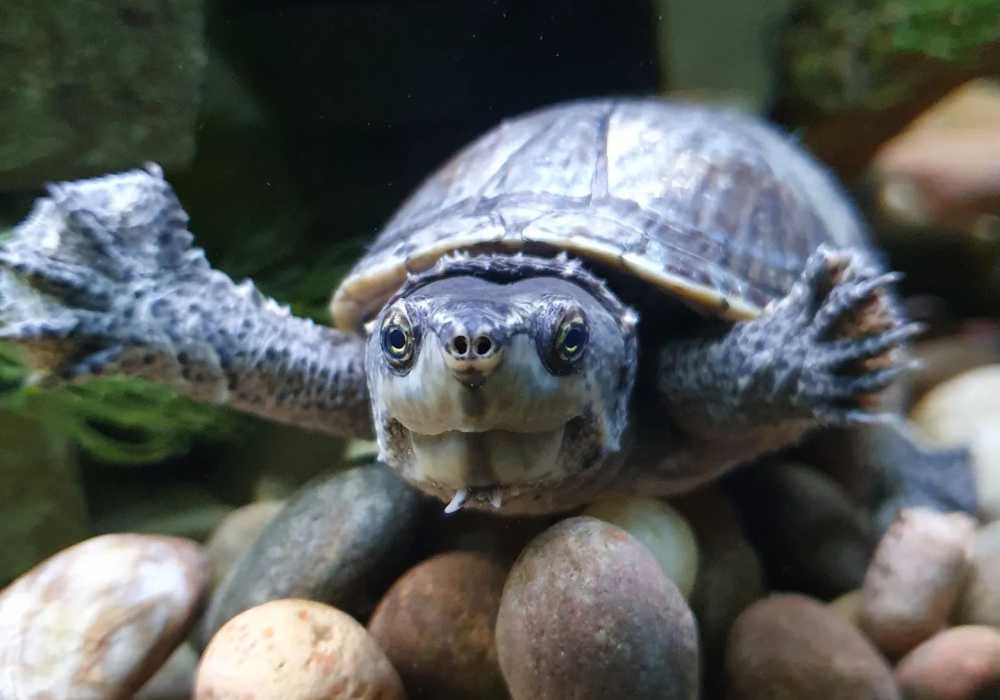
The stinkpot turtle is another good choice for a koi pond turtle. These turtles are on the smaller side, reaching a maximum length of about 6 inches. They’re also very docile by nature and have a diet that consists mainly of plants. So, they shouldn’t bother your koi fish and they won’t compete with them for food.
7) Softshell Turtle
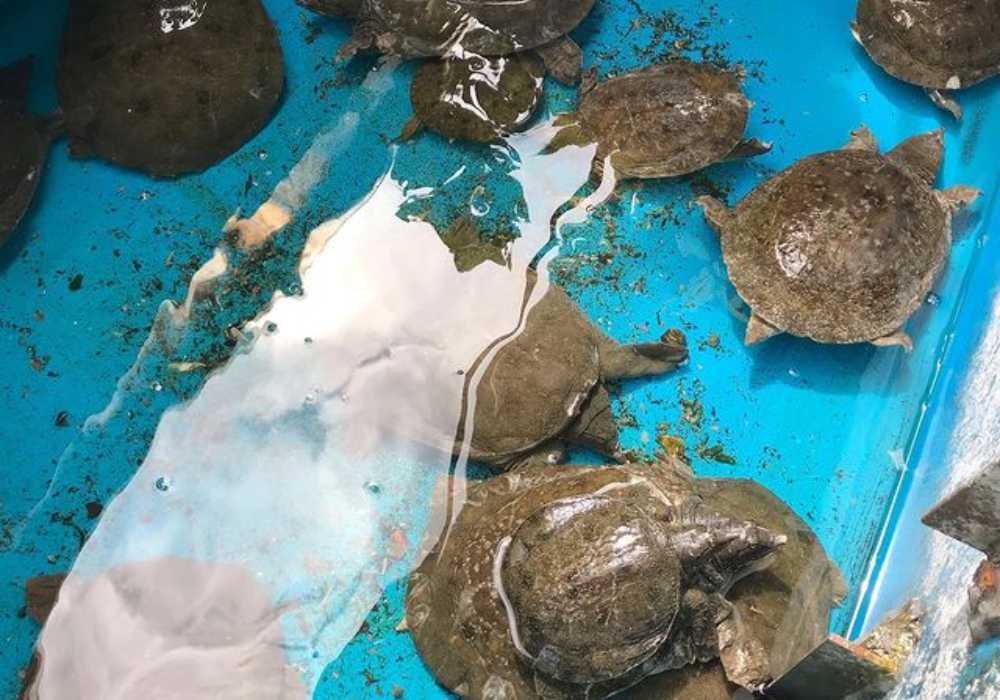
If you’re looking for a slightly larger turtle that can still coexist peacefully with koi fish, then consider the softshell turtle. These turtles can reach lengths of up to 2 feet and generally have a calm temperament. Their diet is also mostly plant-based, so they won’t compete with your koi for food.
8) Reeve’s Turtle
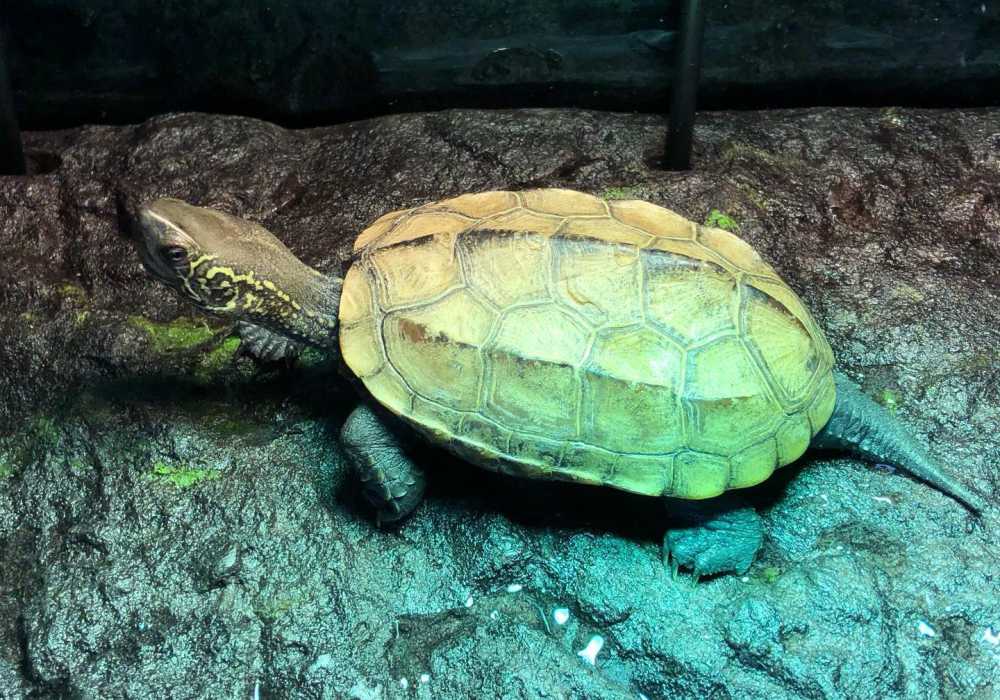
The Reeve’s turtle is another great choice for a koi pond turtle. These turtles are on the smaller side, reaching lengths of only 6-8 inches. They’re also very docile by nature and have a diet that consists mainly of plants. So, they shouldn’t bother your koi fish and they won’t compete with them for food.
9) Snake-necked Turtle
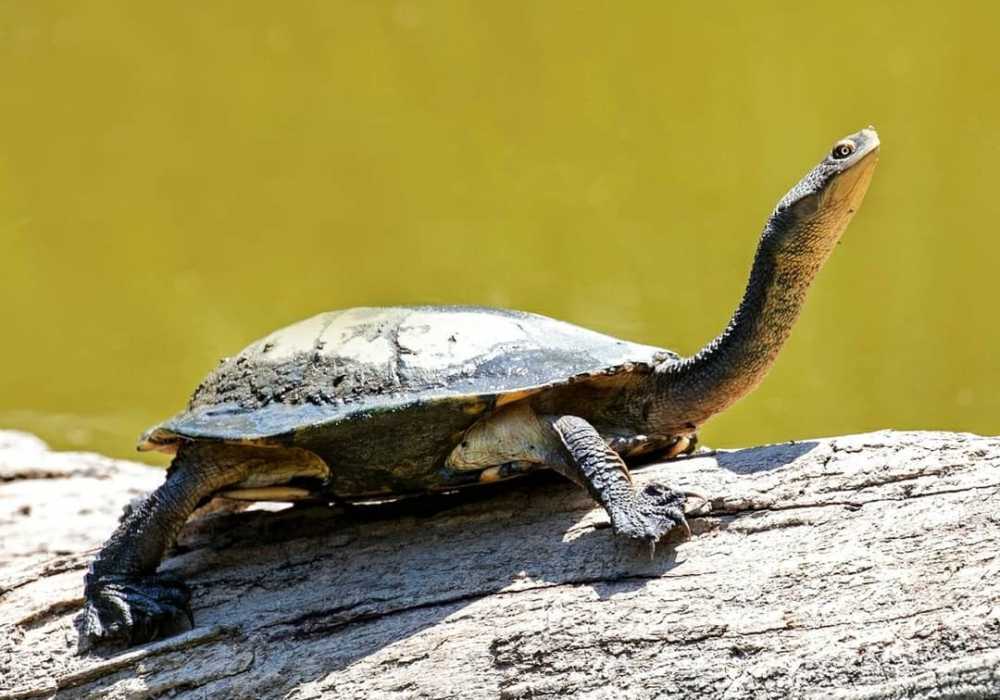
If you’re looking for a slightly larger turtle that can still coexist peacefully with koi fish, then consider the snake-necked turtle. These turtles can reach lengths of up to 2 feet and generally have a calm temperament. Their diet is also mostly plant-based, so they won’t compete with your koi for food.
10) Murray River Turtle
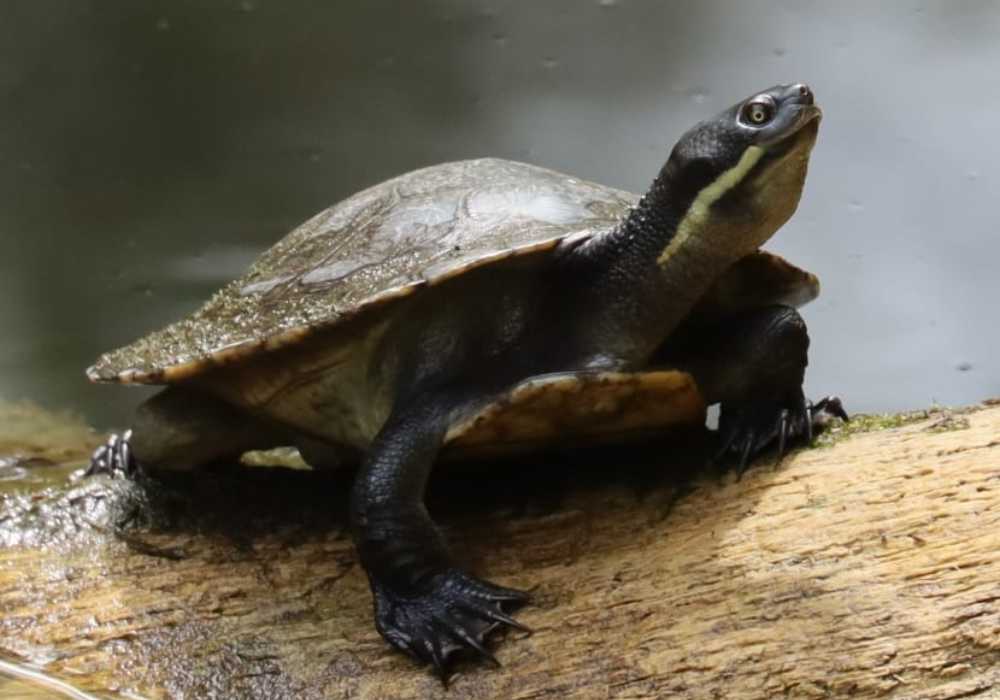
The Murray River turtle is another good choice for a koi pond turtle. These turtles are on the larger side, reaching lengths of up to 3 feet. They’re also very docile by nature and have a diet that consists mainly of plants. So, they shouldn’t bother your koi fish and they won’t compete with them for food.
Choosing the right turtle for your koi pond is important if you want to maintain a healthy and balanced ecosystem. Be sure to do your research and select a turtle that is the right size, temperament, and diet for your koi fish. With proper care and attention, you can enjoy many years of happiness with your new pet turtles.
Do Koi Fish Eat Baby Turtles?
The answer is yes, an adult koi fish will eat baby turtles. In the wild, koi are known to eat small animals and fish. So if you have a baby turtle in your pond, there’s a good chance that the koi will try to eat it because they’re small enough to fit in a Koi’s mouth.
When a koi encounters a baby turtle, the koi may try to eat it out of instinct, but in some cases, it might not be able to crush the shell. If you see your koi fish trying to eat a baby turtle, you should remove the turtle from the pond immediately, as the koi may damage the turtle’s shell while trying to eat it.
How To Protect Baby Turtles From Being Eaten By Koi
There are a few things you can do to protect your baby turtle from being eaten by the koi and 5 of them are as follows:
- You can try to keep the turtle out of the reach of the koi. This may mean keeping the turtle in a separate enclosure or pen.
- You can also try feeding the koi more often so that they’re not as hungry and are less likely to go after the turtle.
- Try partitioning the pond with a net so that the turtle can swim in a safe area away from the koi. This will make it difficult for the koi to get to the baby turtle.
- You can raise the turtle with the koi so that they become accustomed to each other and are less likely to attack.
- If all else fails, you may need to remove either the koi or turtle from the pond.
While there’s no guarantee that these methods will work, they’re worth a try if you’re worried about your baby turtle being eaten. After all, it’s better to be safe than sorry.
Do Koi Fish Eat Turtles?
Even though Koi are omnivorous and will try to eat anything, a Koi fish cannot eat an adult turtle even if they try to. When a turtle is grown, it’s no longer prey to koi fish, because its shell is too hard and they’re too big to fit in a koi’s mouth.
However, koi fish will eat an adult turtle if the turtle is caught, killed, and prepared as a meal for Koi, if not, koi will not hunt or try to eat a turtle because an adult turtle is not prey to Koi fish.
Do Turtles Eat Baby Koi?
If you’re wondering if turtles eat baby koi, the answer is yes. In fact, just like adult koi, turtles will also eat just about anything they can fit into their mouths, including fish, amphibians, reptiles, birds, and mammals. While most turtles are not large enough to pose a serious threat to an adult koi fish, they can easily devour a baby koi. If you have turtles in your pond, it’s best to remove them before they have a chance to feast on your baby koi fry.
How To Protect Baby Koi From Being Eaten By Turtles
There are a few things you can do to protect your baby koi from being eaten by the turtles and 6 of them are as follows:
- Put up a net: You can put up a net over the pond so that the turtles cannot get to the koi. This is probably the most effective measure you can take.
- Partition the pond: You can also partition the pond so that the turtles have their own section and the koi have their own section. This way, the turtles will not be able to get to the koi.
- Keep the turtles well fed: If the turtles are well fed, they will be less likely to go after the koi. So make sure you give them enough food.
- Get rid of any dead fish: Any dead fish in the pond will attract turtles and make them want to eat the koi. So it is important to remove any dead fish from the pond as soon as possible.
- Scare them off: You can try to scare the turtles away by making loud noises or throwing things at them. But this is not always effective and it may just make the turtles more aggressive.
- Get rid of the Turtles: If you can’t seem to keep the turtles away from your koi, then you may have to get rid of them. This is not always possible, but it may be the only way to protect your koi.
Turtles can sometimes be a real menace to koi ponds and they can quickly decimate a population of koi if left unchecked. So it is important to take measures to protect your koi from them. By following the tips above, you should be able to keep the turtles away from your pond and allow your koi to thrive.
Can Koi Eat Turtle Food?
Yes, koi can technically eat turtle food, it is not the best diet for them. While koi and turtles may both enjoy a dip together in the same pond, you might wonder if they can share the same food. After all, they are both aquatic creatures with similar diets, right? Well, not exactly.
You see, even though Koi can eat almost anything, they are actually quite finicky eaters and require a specific diet to stay healthy. On the other hand, turtles are not as particular and will pretty much eat anything that fits into their mouth. So, what does this mean for you? If you’re wondering if koi can eat turtle food, the answer is technically a yes – but we wouldn’t recommend it because turtle food often contains ingredients that koi cannot digest, such as shellfish meal.
Turtle food is not nutritionally balanced for koi as it is typically high in protein and fat which may lead to health problems down the road. It’s better to stick to a koi-specific diet to keep your fish healthy and happy.

I’m Akin Bouchard. Even though I now own several different fish species, I first became a koi pond owner because I loved these creatures and wanted to turn my passion into something more serious. I take pride in my collection of koi fish and love sharing my knowledge with others interested in these beautiful creatures.
A Comprehensive Guide to Training Your Fish to Perform Amazing Tricks Feats

